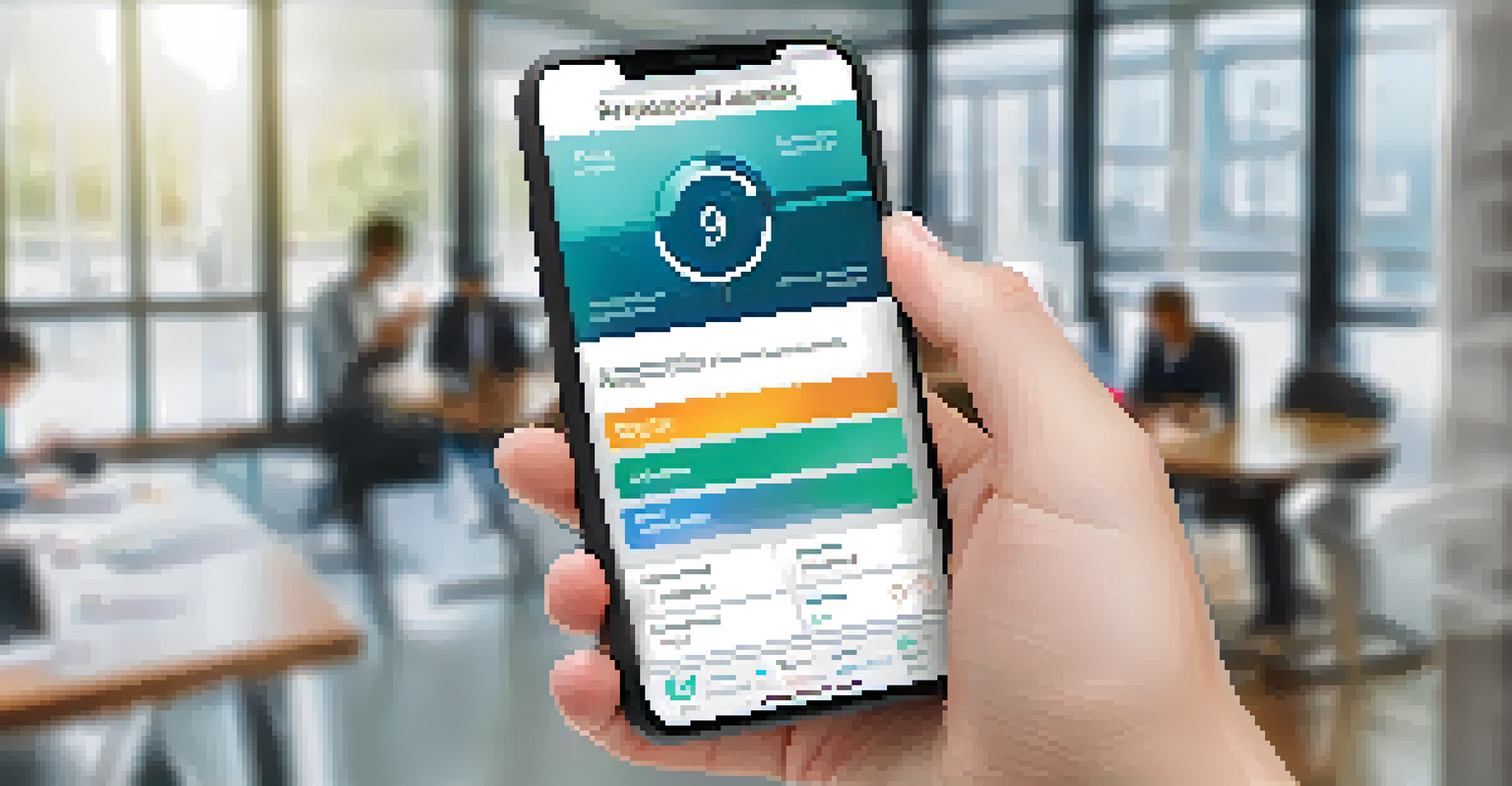How to Assess Your Current Technical Skills Effectively

Understand the Importance of Skill Assessment
Assessing your current technical skills is crucial for personal and professional growth. It helps you identify your strengths and areas for improvement, guiding your learning journey. This understanding not only boosts your confidence but also enhances your marketability in an ever-evolving job landscape.
The only way to do great work is to love what you do.
Moreover, knowing what skills you possess can help you align your career goals more effectively. Whether you're eyeing a promotion, a new job, or a career switch, a clear skill assessment can serve as a roadmap. It allows you to focus your efforts on the skills that will make the most significant impact on your career trajectory.
Finally, regular skill assessments can keep you on track with industry trends and advancements. In today’s fast-paced world, technology is constantly changing. By periodically evaluating your skills, you can ensure you remain relevant and competitive in your field.
Identify Key Technical Skills Relevant to Your Field
To assess your technical skills effectively, start by identifying the key skills required in your field. This could range from programming languages for software developers to data analysis tools for data scientists. Understanding what is valued in your industry sets a solid foundation for your assessment process.

Once you know the critical skills, list them out and categorize them based on your proficiency. This will help you visualize where you stand and which skills you need to focus on. Consider consulting job descriptions, industry blogs, or professional networks to gather insights on the essential skills.
Skill Assessment Drives Growth
Regularly assessing your technical skills boosts confidence and enhances your marketability in a competitive job landscape.
Additionally, don’t hesitate to solicit feedback from peers or mentors. They can provide valuable perspectives on the skills that are most relevant and beneficial for your growth. This collaborative approach can uncover skills you might not have considered.
Conduct a Self-Assessment of Your Skills
A self-assessment is a personal reflection on your technical skills. Take the time to evaluate your abilities honestly, considering both your successes and challenges. This introspection can be enlightening, revealing not just your skill level but also your learning style and preferences.
Learning never exhausts the mind.
One effective method for self-assessment is to create a skills matrix. List out the skills you’ve identified, and then rate your proficiency in each one. This visual representation not only highlights your strengths but also makes it easy to spot areas needing improvement.
Don’t forget to document your experiences and projects related to these skills. Reflecting on real-life applications can provide context for your proficiency and help you articulate your abilities more clearly in future job interviews.
Utilize Online Assessment Tools and Resources
The internet is brimming with resources designed to help you assess your technical skills. Websites like LinkedIn Learning or Codecademy offer quizzes and assessments tailored to various technical competencies. These tools can provide a more structured evaluation of your skills.
Another option is to take part in online forums or communities related to your field. Platforms like GitHub or Stack Overflow allow you to engage with others and showcase your skills through contributions. This not only helps you assess where you stand but also builds your professional network.
Define Key Skills for Your Field
Identifying and categorizing key technical skills relevant to your industry sets a solid foundation for effective self-assessment.
Moreover, consider participating in coding challenges or hackathons. Engaging in competitive environments can highlight your skills and areas for improvement in real-time, giving you a comprehensive view of your technical capabilities.
Seek Feedback from Colleagues and Mentors
Feedback is a powerful tool when assessing your technical skills. Colleagues and mentors can provide insights you might overlook during your self-assessment. Their external perspective can highlight both strengths and opportunities for growth.
To get constructive feedback, consider scheduling one-on-one sessions. Prepare specific questions about your skills and projects you've worked on. This will make the conversation more focused and beneficial, allowing you to gain valuable insights into your performance.
Additionally, be open to criticism and use it as a learning opportunity. Constructive feedback can uncover blind spots in your skill set, enabling you to address them proactively. Remember, growth often comes from stepping out of your comfort zone.
Set Clear Goals for Skill Improvement
Once you’ve assessed your technical skills, it’s time to set clear goals for improvement. Having specific, measurable, achievable, relevant, and time-bound (SMART) goals can make your learning journey more structured. For instance, instead of saying 'I want to learn Python', you might say 'I will complete an online Python course by the end of next month'.
These goals should align with the skills you identified as needing improvement. This focus will help you dedicate your time and resources effectively, ensuring meaningful progress. Regularly reviewing your goals can keep you motivated and accountable.
Set Goals for Skill Improvement
Establishing specific and measurable goals helps streamline your learning process and ensures meaningful progress in skill development.
Moreover, consider breaking larger goals into smaller, manageable tasks. This approach not only makes the learning process less overwhelming but also allows you to celebrate small victories along the way, boosting your confidence and commitment.
Regularly Review and Update Your Skills Assessment
Skill assessment is not a one-time task but an ongoing process. As technology and industry standards evolve, so should your evaluation of your skills. Regular reviews can help you stay updated and relevant in your field.
Consider setting a schedule for your assessments, such as every six months or annually. This will help you track your progress and adjust your learning goals as needed. Remember to celebrate your achievements during these reviews to boost your motivation.

Finally, embrace the idea of lifelong learning. The more you assess and develop your skills, the more prepared you will be for new opportunities. Staying curious and proactive about your skill set can lead to exciting career advancements.